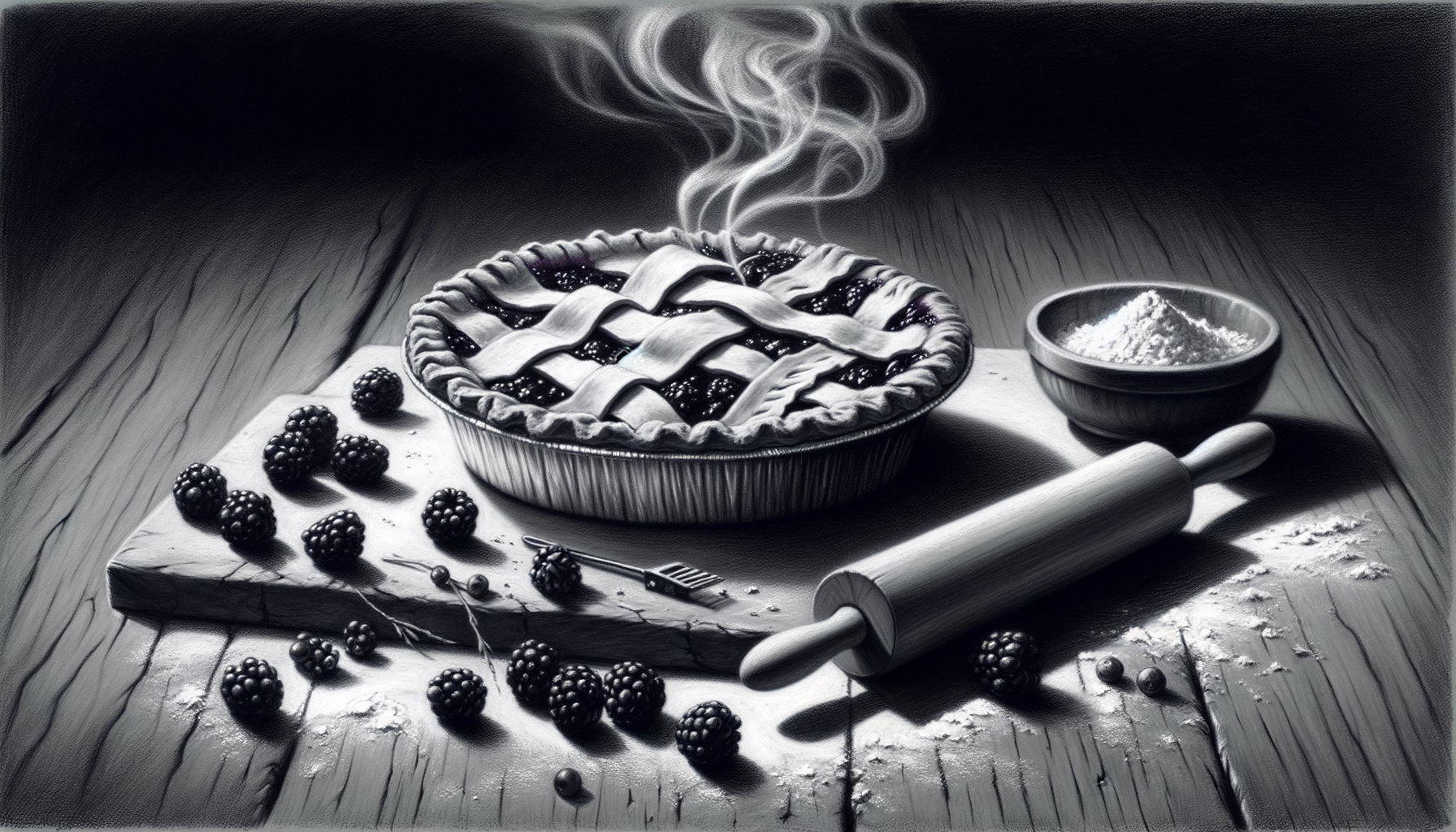It starts with the pie. Not just any pie—blackberry pie, the kind that oozes deep purple syrup onto your plate and leaves your fingers stained like you’ve been making secret pacts with wild brambles. In my family, pie is more than dessert; it’s a Rorschach test for your work ethic, patience, and whether you’ll let a bee hover around your face without flinching. The story goes that my great-grandmother, Mabel, once hauled a basket of foraged blackberries down eight miles of dirt trail with nothing but a rusty wagon wheel, a pair of bad shoes, and her sheer sense of spite for anyone who doubted she could bake five pies before sunset. That was her Saturday.
If Mabel sounds like some kind of frontier superhero, that’s because family lore sharpens people into caricatures—part fact, part exaggeration, and always useful when your siblings need a reason to tease you. Growing up, every time I felt like giving up on something hard—learning to saddle a horse before school, or rewriting an essay for the fifth time—I’d hear about Mabel and her blackberry pies. If Mabel could knead dough after hiking through a rattlesnake-infested canyon, surely I could survive sophomore calculus. Family stories are like this: weird little ghosts hovering in the room, nudging you toward becoming a better version of yourself.
Once Upon a Cattle Drive...
Many of these stories were set around my family’s ranch outside Bozeman, Montana, land bordered by electric fences and yawning expanses of golden prairie. We were practical people raised on wholly impractical myths. My dad liked to remind us of the time my Uncle Walt got bucked off a horse, walked home with a dislocated shoulder, and still fixed the fence before sitting down to dinner. Did it really go down exactly like that? Probably not. Or, knowing Walt, maybe it did.
These tales served a purpose—they framed hardship and resilience as virtues, which was helpful when your chores included hauling feed buckets through three feet of snow or shoving a reluctant goat out of the garage because Dad “left the door open for two seconds, kids.” There was little room for self-pity, but plenty of room for storytelling.
Even on calm days, the ranch had a way of testing everyone. We had a mare named June who was about as cooperative as a toddler with a sugar high, and giving her water was a chore worthy of its own epic poem. I remember struggling with her one scorching July afternoon, only for my brother Tess to lean against the porch railing, smirking. “You’ve got to channel Mabel,” he said. “Think about pies.”
Fantastic. Imagining lattice crusts during a hot water fight was about as helpful as bringing a guitar to put out a house fire. June won, by the way—or at least she didn’t lose, which she probably considered the same thing. But looking back, Tess’s sarcasm made me laugh. Hardship feels smaller when you share it, or when you hear the story told later, slightly exaggerated to make it funnier. I learned early on that humor was its own kind of resilience.
Grandma Edith’s Love Lessons
If Mabel taught grit, my Grandma Edith taught perspective—particularly when it came to love. Famous in the family for her sharp tongue and sly humor, Edith had a way of cutting through melodrama like the bite of good huckleberry jam. She’d been married to my grandpa for sixty-one years, and every so often, someone in the family would ask her how they lasted so long. Her response? “Never trust a man who drinks before noon, but always trust the ones who fix your leaky sink.”
At first, I thought she was joking. Then I watched her divide people into two categories: those who make excuses and those who roll up their sleeves. She had zero patience for big talkers, people who overpromised and underdelivered. “Anyone can charm you for a round of poker,” she told me once. “What matters is who refills the coffee pot after.”
Edith’s advice came in handy years later when I was dating a man who could write text messages so poetic they verged on Shakespearian. It was intoxicating. But texting’s easy, isn’t it? Showing up isn’t. And when plans kept getting canceled or forgotten altogether, I’d find myself hearing Edith’s dry laugh in my head. Eventually, I left the guy on read and moved on. The moral stuck with me: find someone whose actions are the punchline to their words.
Learning Who I Am Through Stories
If you’ve ever had a family like mine—loud, flawed, quick to criticize but quicker to laugh—you know that traditions sometimes look chaotic from the outside. Yet inside that mess, there’s value. Over time, the stories of my family (half-true or not) have become part of who I am: the backbone built from Mabel’s pies, Edith’s no-nonsense love rules, and all the everyday sagas in between.
Family lore is a funny thing. It’s not always helpful in obvious ways, and sometimes it sidesteps practicality entirely in favor of comedy or drama. But it tells you something deep about where you come from—and, in turn, about where you’re headed. The stories in my family remind me to strive without complaint, to find the humor in life’s absurdities, and to hold onto people who carry their weight in the world with grace.
Maybe your family has its own strange legends. Maybe it’s your dad insisting his chili recipe won five county fair ribbons (despite a suspicious lack of ribbons), or your sibling swearing they once beat the school bully with sheer persuasive charm. Those stories shape us, in ways small and big. They make us pause and ask: am I living up to the chaos and brilliance of my ancestors’ mythos?
And let’s be real, if you’ve never brought pie to a first date, you’re missing an opportunity to instantly disarm someone with a piece of flaky goodness. Mabel would approve—and she’d probably suggest blackberry.




















